…TheRivers are fading, farms are struggling, and future generations are forced to consume and drink the consequences of their forebears' actions.
By Professor Douglas BOATENG
It starts as a hole in the ground but ultimately becomes an open grave with polluted rivers, tainted farmlands, a public health emergency, and weakened national independence. Ghana's unlawful gold mining problem, referred to locally as Galamsey, has evolved far beyond a criminal economy. What began as small-scale panning has expanded into a shadow industry valued at a minimum of one billion dollars.
Equipped with excavators, mercury, drones, and outside funding, Galamsey has gone beyond causing environmental harm. It is eroding rural economies, weakening institutions, and threatening the future of Ghana's youth. Even after years of high-profile initiatives, such as Operation Vanguard, Halt, NAIMOS, and thousands of arrests since 2016, the damage continues. The machinery comes back. The rivers become darker. And the people keep enduring the hardship.The harsh reality is that the government cannot triumph in this conflict by itself.This goes beyond a law enforcement issue. It represents a societal breakdown, a lack of effective governance, and a humanitarian crisis that will affect the most vulnerable the hardest.
Dirty waters, polluted soil – the effects of the future
In the Eastern and Western regions of Ghana, rivers like the Birim, Pra, Ankobrah, and Offin are now carrying sludge, mercury, and cyanide. The Ghana Water Company has raised concerns that the nation might soon need to import clean water. Craters have taken the place of cocoa farms. Cattle herders are looking for safe areas to water their animals. Fishing communities catch silt. Wells provide water that is chemically polluted. When water is not safe to drink and soil is not fertile, no crops grow, no livestock survives, and no country can endure. Once a symbol of food and water security in the region, Ghana is now moving dangerously toward ecological bankruptcy.
Foreign influence, local support and secrecy
The most tragic irony is this: the worst offenders would never carry out such actions in their own nations. International-backed groups, typically more equipped than local police forces, breach Ghana's environmental standards in ways that would be impossible under the regulations of their home countries. However, they do not act alone. The unfortunate truth is that a network of local, intricate, and self-interested partners facilitates their activities:
- Citizensthose who remain quiet due to fear or monetary benefit
- Chiefs who lease sacred land
- Security officerswho ignore the situation
- Politicianswho gains from the earnings
The inconvenient truth –These external entities will leave with their pockets full. Ghana will be left with contaminated wells, deteriorating environments, and a generation that grows up sick. This is more than just illegal mining; it represents the commercialization of Ghana's spirit, being sold off piece by piece for another's prosperity.
The hidden expense – a significant long-term health issue emerging
In mining areas, clinics are observing a rise in mercury poisoning, breathing difficulties, pregnancy losses, and brain-related injuries, particularly affecting children and expectant mothers. These harmful substances won't be visible at voting booths, yet they will manifest in special education facilities, overburdened medical centers, and throughout families trapped in poverty. Galamsey is not only harming the land; it is subtly changing the country's biological makeup. This issue extends beyond rural zones; it represents a nationwide crisis. Ghanaians might not fully realize the consequences today, but in two decades, hospitals, educational institutions, and the economy will bear the weight of our inaction.
Crime cannot be addressed solely by the government.
The issue is not the intent. From President Kufuor's initial worries to President Mahama's instructions and President Akufo-Addo's promise to risk his presidency, and once more under President Mahama, administrations have attempted and keep striving their hardest. Operations have been initiated. Equipment has been confiscated. Declarations have been issued. Nevertheless, within a few weeks, the same locations resume operations.
Galamsey continues to exist not due to the absence of laws, but because it flourishes in the gaps between policies and their implementation, shielded by patronage, desperation, and silence. No bulldozer can remove complicity. No single law can eliminate deep-rooted indifference. The true battle is about civic ethics and shared bravery. This issue will not be addressed from Accra. It needs to be confronted in the villages, churches, schools, and chief's residences.
The main way to eliminate this crime is through a collaboration between citizens and the government.
The government is unable to halt Galamsey by itself; it has become deeply integrated into Ghana's social and economic system, fueled by poverty, greed, materialism, and hidden behind fragmented accountability. If around 300,000 Ghanaians (~1% of the population) came together as whistleblowers and community advocates, it could shake up the criminal network. Alerts, reports, reclaiming, and revealing; these are forms of civic engagement.
When people take the initiative, progress occurs
In 2023, an educator from the Ashanti Region captured footage of Galamsey operations close to a school. The video became widely shared online. Soon after, the activity was halted. In the Western Region, a grandmother refused a GHS 5,000 bribe and alerted authorities about a nighttime group. Their machinery was confiscated. In Upper Denkyira, young people blocked entry points and transformed a ruined excavation site into a plantain farm. These successes werenot created by the government. They were deeds of regular individuals surpassing fear and exhaustion.
Traditional authority – between respect and significanceChieftaincy continues to be one of the most respected systems in Ghana. Yet, it faces the possibility of losing its significance. No stool should rent out ancestral land for its destruction. No palace should protect those responsible. No elder should pretend not to know. A chief who benefits from Galamsey is not safeguarding tradition. He is selling it off. It's high time for chieftaincy to regain its ethical authority, not just through ceremonies, but by protecting water, land, and future generations.
The economic mirageSome people support Galamsey by pointing to joblessness. However, the consequences are severe:
- Jobs that poison workers
- Income that destroys forests
- Gold that fuels corruption
This is not genuine progress. It represents temporary self-destruction and lawlessness, backed by those who prioritize immediate gains and lack understanding, presented as a remedy for joblessness and poverty. And when the gold is gone? They will depart with their pockets full. Ghana will be left with contaminated water sources and damaged infrastructure.forests, and children who come into the world with illness.
The global investment dimension
As one of Africa's major gold producers and an important participant in cocoa and critical minerals, Ghana faces consequences that go beyond environmental concerns. Investors are closely watching the situation. With ESG metrics playing a growing role in global investment trends, Ghana runs the risk of damaging its reputation, which may deter ethical investors.
Companies engaged in mining or farming encounter challenges related to social acceptance if they are perceived as being close to or benefiting from unlawful operations. Exporting countries, especially in Europe, are implementing stricter regulations on supply chain transparency, like the EU's Corporate Sustainability Due Diligence Directive (CSDDD). Galamsey also threatens the goals of the AfCFTA by undermining confidence in cross-border regulatory systems. The true danger is that Ghana might serve as a cautionary tale for resource-abundant nations losing authority over their natural resources.
The cost of doing nothing is measurable and disastrous
If current trends persist:
- Ghana could allocate more than US$2 billion each year for water treatment purposes by 2035.
- Cocoa exports might drop by 30 percent, causing instability in rural economies.
- Mercury and cyanide exposure might trigger a multi-billion-dollar public health crisis
- The ability to withstand climate impacts will disappear as tree coverage decreases and river networks fail.
And when the gold has disappeared? What will be left are contaminated rivers, barren soil, weakened economies, and futures sold off for foreign gain at the cost of Ghanaians.
From observers to participants – a new vision of citizenshipLeadership is not solely the responsibility of the government. It represents a collective ethical agreement.
- Educators should promote environmental awareness, rather than remain quiet.
- Religious figures should promote responsibility, not apathy
- Reporters are required to reveal, not justify
- Chiefs should guide, not rent
- Residents are required to be responsible for leaders and their own actions.
A country does not merely perish when its rivers run dry and the land becomes tainted, but when its citizens lose their concern.
A fresh approach to governance – originating from the grassroots, rather than imposed from above
Galamsey serves as both a cautionary tale and an example for African governance. It highlights the shortcomings of centralized approaches and the strength of local authority. Picture:- Each District Assembly that supports youth-driven restoration teams
- Public environmental dashboards monitoring decline and regulatory action
- Funds for restoration are jointly funded by the state and the community, and are monitored in a transparent manner.
This is more than a call to action; it is a call to moral awareness. Enough empty words. Enough clichés. Enough inaction. Let the educator speak. Let the leader take responsibility. Let the mother voice her concerns. Let the young people mobilize. Let the reporter reveal the truth. Let the public hold accountable. Because the decision-makers are too distant. The community is too close. The river is too valuable. The land needs protection. And time is running out. Let history not remember that we stood by as our rivers died and lands were polluted while foreign criminal groups and local selfish lawbreakers prospered. Let it be known that we rose not with weapons, but with determination. That we reclaimed not only the land, but our self-respect. That we fought not for wealth, but for Ghana. And let it be said that when the future's child cried out, we responded.
The author is a globally recognized thought leader, Chartered Director, industrial engineer, supply chain management specialist, and social entrepreneur, renowned for his impactful work in industrialization, procurement, and strategic sourcing within developing countries.
As Africa's inaugural Professor Extraordinaire in Supply Chain Governance and Industrialization, he has provided guidance to governments, companies, and decision-makers, promoting sustainability and development. While serving as Chairman of the Minerals Income Investment Fund (MIIF) and Labadi Beach Hotel, he guided these organizations to international acclaim for their innovation and operational excellence. He previously held the position of chairman at the Public Procurement Authority.
A highly productive writer with more than 90 works, he is the founder of NyansaKasa (Words of Wisdom), an engaging platform that reaches over one million readers each day. Under his forward-thinking guidance, Professor Boateng keeps motivating ethical leadership, creativity, and the empowerment of young people, pushing Africa towards a sustainable and equitable future.





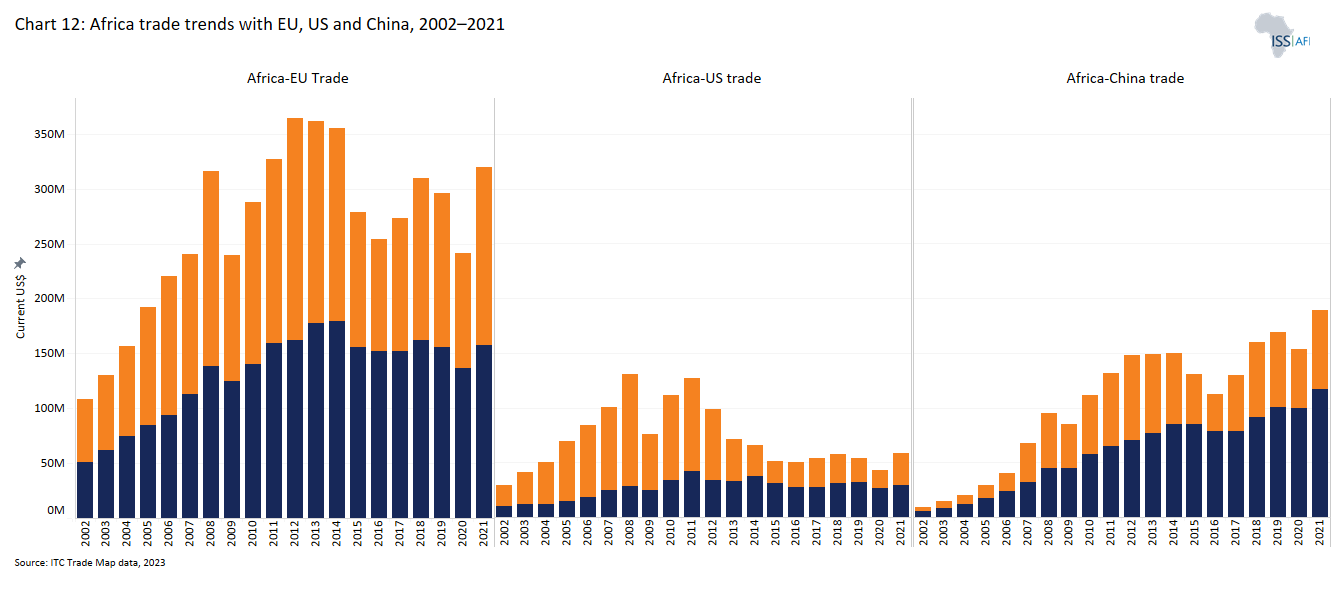
 Zimbabwe has cautioned Chinese investors against ignoring local labor and environmental regulations, as well as engaging in illegal financial practices, a rare position following prolonged public grievances.
Zimbabwe has cautioned Chinese investors against ignoring local labor and environmental regulations, as well as engaging in illegal financial practices, a rare position following prolonged public grievances.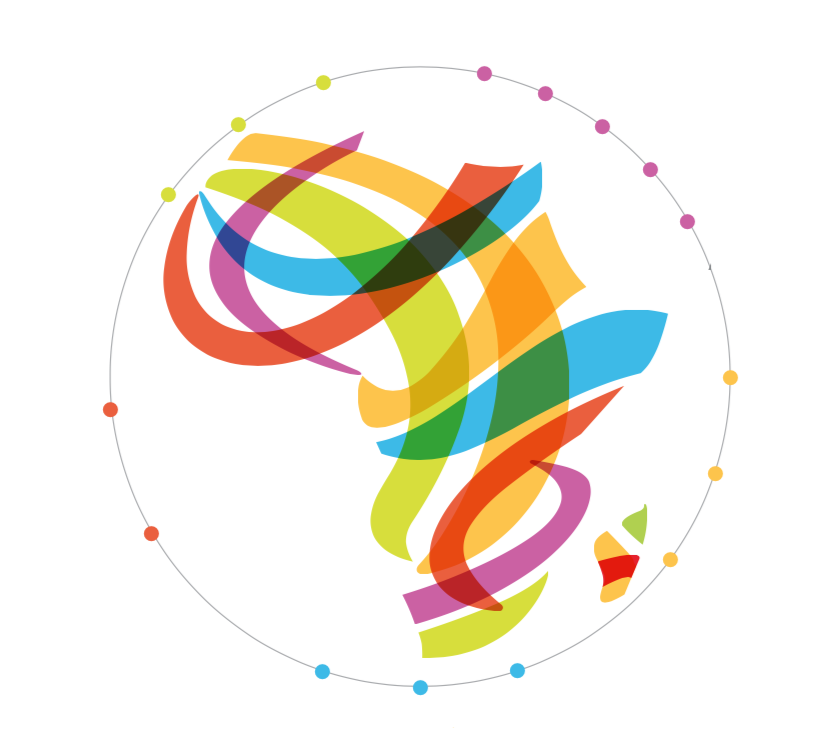 Dar es Salaam. The East African Community (EAC) has taken over the rotating chairmanship of the COMESA-EAC-SADC Tripartite Task Force (TTF) at a crucial time, reigniting hopes for a more unified and integrated regional trade system. However, a central question remains: can this leadership role help the EAC overcome its internal challenges and lead to a genuinely tariff-free region? The TTF unites three major Regional Economic Communities (RECs): the Common Market for Eastern and Southern Africa (COMESA), the East African Community (EAC), and the Southern African Development Community (SADC). It was created to coordinate the implementation of the Tripartite Free Trade Area (TFTA). Launched in 2015, the TFTA aims to promote market integration, industrial growth, and infrastructure development across 29 African countries, serving a population of over 700 million. Yet, almost a decade later, progress has been slower than anticipated due to ongoing non-tariff barriers, delayed ratifications, and a lack of unified customs systems among member states. On July 25, 2024, the TFTA Agreement officially came into effect after securing the necessary 14 ratifications. However, the real challenge lies in putting the agreement into practice, a task now entrusted to the EAC as it assumes the TTF's leadership. EAC Secretary General, Ms Veronica Nduva, speaking at a high-level roundtable in Malabo, Equatorial Guinea, on July 14, 2025, advocated for a continent-wide resource mobilisation strategy to replace fragmented efforts that have hindered progress. "We must abandon disjointed approaches. Africa needs a harmonised strategy for resource mobilisation to effectively implement Agenda 2063," she stated. "We see the TFTA as a strategic tool to deepen integration, boost competitiveness, unlock intra-African trade, and advance inclusive industrialisation," she added. Ms Nduva also highlighted the importance of blended financing models involving public, private, and philanthropic capital, along with the use of technology to enhance coordination and accountability. The big question While the EAC’s assumption of leadership is diplomatically significant, the bloc has faced difficulties in implementing its integration protocols. Several EAC Partner States have previously failed to uphold agreed tariff removals, leading to internal trade disputes and delays in harmonisation efforts. Trade tensions between Kenya and Tanzania over products such as sugar, maize, and milk have revealed the inconsistent application of EAC trade rules, undermining the bloc’s credibility in broader integration efforts. According to Dr Paul Omollo, a regional trade policy analyst based in Dar es Salaam, the EAC must first address its shortcomings. "The EAC has made impressive commitments on paper. But implementation remains its biggest weakness," Dr Omollo told The Citizen by phone. "Taking over TTF leadership is significant, but the EAC must back that up with real reforms at home. It must demonstrate that regional integration can work, starting with its borders." What does chairing the TTF mean? Assuming the TTF chairmanship places the EAC in charge of guiding the finalisation of tariff offers, adoption of rules of origin, and encouraging ratification by the remaining states. The bloc is also expected to lead the revival of the TFTA’s industrial development pillar, one of its key components. "Our focus is to ensure that the TFTA becomes fully operational, not just in name but in action," said Ms Nduva. "We are pushing for the ratification of both the trade and movement of businesspeople agreements," she said. Experts believe this leadership position could allow the EAC to influence harmonised customs policies, coordinated infrastructure investments, and the development of joint industrial zones, provided there is strong political will among member states. "The TFTA could be a game-changer if it builds synergies across the three RECs," said a policy adviser at TradeMark Africa, Mr Humphrey Ramela. "The EAC’s leadership is timely. But success depends on aligning national interests with regional ambitions," he added. Another key theme from the Malabo roundtable was financial independence, with Ms Nduva reiterating the need for African nations to reduce reliance on external donors and adopt African-led financing models. "Austerity must go hand-in-hand with innovation. Resources allocated for development must be managed with discipline and efficiency," she noted. The African Union Commission Chairperson, Mahmoud Ali Youssouf, echoed this sentiment, urging member states to finance their development agendas and adopt the instruments required to operationalise the TFTA by the time of the next Tripartite Council of Ministers meeting. "African ownership is not optional; it is the only path to sustainable development," said Mr Youssouf. With preparations for the fourth Tripartite Summit underway, during which the TFTA will be formally launched, expectations are high. The EAC’s challenge will be to not only champion regional integration at the tripartite level but also prove its commitment to seamless trade within its borders.
Dar es Salaam. The East African Community (EAC) has taken over the rotating chairmanship of the COMESA-EAC-SADC Tripartite Task Force (TTF) at a crucial time, reigniting hopes for a more unified and integrated regional trade system. However, a central question remains: can this leadership role help the EAC overcome its internal challenges and lead to a genuinely tariff-free region? The TTF unites three major Regional Economic Communities (RECs): the Common Market for Eastern and Southern Africa (COMESA), the East African Community (EAC), and the Southern African Development Community (SADC). It was created to coordinate the implementation of the Tripartite Free Trade Area (TFTA). Launched in 2015, the TFTA aims to promote market integration, industrial growth, and infrastructure development across 29 African countries, serving a population of over 700 million. Yet, almost a decade later, progress has been slower than anticipated due to ongoing non-tariff barriers, delayed ratifications, and a lack of unified customs systems among member states. On July 25, 2024, the TFTA Agreement officially came into effect after securing the necessary 14 ratifications. However, the real challenge lies in putting the agreement into practice, a task now entrusted to the EAC as it assumes the TTF's leadership. EAC Secretary General, Ms Veronica Nduva, speaking at a high-level roundtable in Malabo, Equatorial Guinea, on July 14, 2025, advocated for a continent-wide resource mobilisation strategy to replace fragmented efforts that have hindered progress. "We must abandon disjointed approaches. Africa needs a harmonised strategy for resource mobilisation to effectively implement Agenda 2063," she stated. "We see the TFTA as a strategic tool to deepen integration, boost competitiveness, unlock intra-African trade, and advance inclusive industrialisation," she added. Ms Nduva also highlighted the importance of blended financing models involving public, private, and philanthropic capital, along with the use of technology to enhance coordination and accountability. The big question While the EAC’s assumption of leadership is diplomatically significant, the bloc has faced difficulties in implementing its integration protocols. Several EAC Partner States have previously failed to uphold agreed tariff removals, leading to internal trade disputes and delays in harmonisation efforts. Trade tensions between Kenya and Tanzania over products such as sugar, maize, and milk have revealed the inconsistent application of EAC trade rules, undermining the bloc’s credibility in broader integration efforts. According to Dr Paul Omollo, a regional trade policy analyst based in Dar es Salaam, the EAC must first address its shortcomings. "The EAC has made impressive commitments on paper. But implementation remains its biggest weakness," Dr Omollo told The Citizen by phone. "Taking over TTF leadership is significant, but the EAC must back that up with real reforms at home. It must demonstrate that regional integration can work, starting with its borders." What does chairing the TTF mean? Assuming the TTF chairmanship places the EAC in charge of guiding the finalisation of tariff offers, adoption of rules of origin, and encouraging ratification by the remaining states. The bloc is also expected to lead the revival of the TFTA’s industrial development pillar, one of its key components. "Our focus is to ensure that the TFTA becomes fully operational, not just in name but in action," said Ms Nduva. "We are pushing for the ratification of both the trade and movement of businesspeople agreements," she said. Experts believe this leadership position could allow the EAC to influence harmonised customs policies, coordinated infrastructure investments, and the development of joint industrial zones, provided there is strong political will among member states. "The TFTA could be a game-changer if it builds synergies across the three RECs," said a policy adviser at TradeMark Africa, Mr Humphrey Ramela. "The EAC’s leadership is timely. But success depends on aligning national interests with regional ambitions," he added. Another key theme from the Malabo roundtable was financial independence, with Ms Nduva reiterating the need for African nations to reduce reliance on external donors and adopt African-led financing models. "Austerity must go hand-in-hand with innovation. Resources allocated for development must be managed with discipline and efficiency," she noted. The African Union Commission Chairperson, Mahmoud Ali Youssouf, echoed this sentiment, urging member states to finance their development agendas and adopt the instruments required to operationalise the TFTA by the time of the next Tripartite Council of Ministers meeting. "African ownership is not optional; it is the only path to sustainable development," said Mr Youssouf. With preparations for the fourth Tripartite Summit underway, during which the TFTA will be formally launched, expectations are high. The EAC’s challenge will be to not only champion regional integration at the tripartite level but also prove its commitment to seamless trade within its borders.
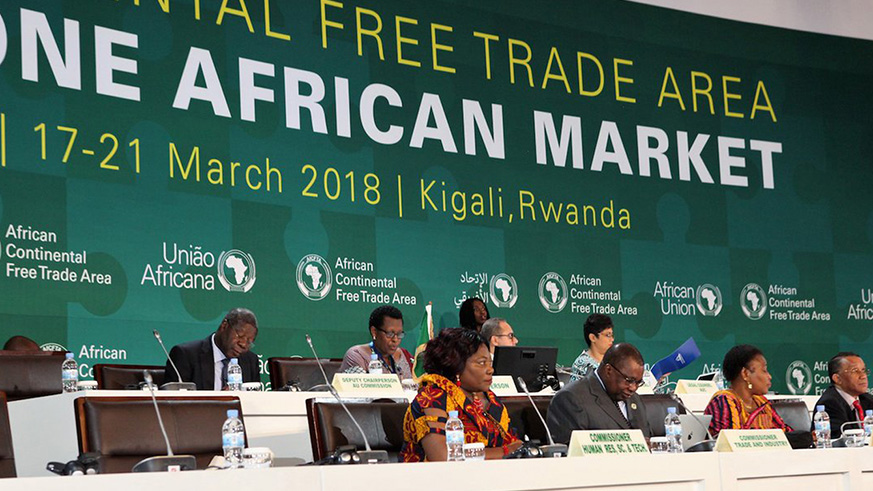
 Ideas often emerge to solve problems. What were the initial challenges you faced, and what opportunity did you see in the market? I started building NALA in 2017. It wasn't an easy path; I built, failed, rebuilt, and failed again. In April 2018, we launched a USSD-based app to help users manage mobile money more efficiently. It didn’t perform well. However, we reached number one on the Play Store in Tanzania, and then we received a cease and desist letter from the country's largest telecom operator, accusing us of stealing customer PINs. Around the same time, I was called in by the central bank to explain how our technology worked. It was a frustrating moment, especially as a young innovator, around 24 or 25 years old, trying to solve real issues. How did you manage to shift from a mobile money management app to international remittances? Pivoting was challenging; no one likes to fail. Moving from domestic payments to cross-border remittances was a tough decision, especially since I had never lived in the UK before. But then the COVID-19 pandemic hit, and we began seeing a global shift: more people preferred digital channels for sending money. That’s when I noticed two important trends. First, population growth in Africa and Asia was accelerating. Africa has about 1.2 billion people and is expected to reach 2.5 billion by 2050, with the world's largest workforce. Asia showed similar patterns. Second, with population growth comes increased migration. Every year, approximately 1.6 million Indians and 1.1 million Africans leave their home countries in search of opportunities abroad. And when people migrate, money follows, along with trade. We realized there was a massive opportunity to build a financial infrastructure that serves this global movement of people and money. Today, NALA is one of the largest remittance companies in Africa. We handle over $1 billion in annual transfers to Africa and Asia. More importantly, we are contributing meaningfully to local economies. There have been conflicting reports regarding Nala's decision not to base operations in Tanzania. What's the real story? People say what they want because it sells. It's frustrating to see misinformation, especially when no one asks for my side. I did apply for a license in Tanzania—it just took longer than in other markets. When you raise foreign capital, investors expect results. We got approval faster in Kenya with a letter of no objection from the Central Bank, so we launched there first. That's just business. Kenya also has stronger tech talent. Today, we do have an office in Tanzania and local employees. But Nala doesn't have a single headquarters. If we go by revenue, the U.S. would be our HQ. By headcount, it's the UK. By impact, it's Africa. We operate in 11 countries in Africa, 19 in Europe and North America, and four in Asia. We have an office in Nairobi for several reasons. One is that the UK is where we started, and the first country that gave us permission to send money to was Kenya. While I was waiting for approval from Tanzania's central bank, we received our license in Kenya, so that's where we had to build our support base, as the number of customers was growing rapidly. It took about a year and a half to get regulatory approval in Tanzania, but only two to three months in Kenya. As a tech company, time is your enemy, and speed wins. Another reason we built a customer support base in Kenya is language. In Tanzania, English proficiency isn't as widespread as it is in Kenya, so hiring staff with the required level of English would have been much more expensive. My decision was based on market dynamics, customer growth, and language efficiency. Some government representatives have claimed to be in talks with you to bring Nala home. What's your response? A lot of them are lying. I hear claims being made in Parliament by people I've never even met. If someone really wants to solve problems, they can just call me. Let's solve it together. You entered a remittance space dominated by companies such as Western Union and MoneyGram. What gave you the confidence to take them on? I was told not to do this business many times. I've got emails and WhatsApp messages warning me I'd fail. But I had a team that believed in the vision. We decided to try. If it worked, great. If it didn't, at least we tried. Too many people just talk and never launch. Truth is, we could still fail. I tell my team all the time: we're still a small company with a long way to go. What gave you the conviction that this could work? I pray. But full conviction is impossible; you can always be wrong. Indecisiveness, however, is too expensive. I ask God for wisdom, strength, and understanding. Then we give it our best. As long as you know you tried your best, you're already closer to success. Nala is known for blending local market expertise with global experience. What does that look like practically? Talent and opportunities are everywhere. What gets interesting is when you bring together someone who's worked in mobile money in East Africa, someone from digital banking in London, and someone from Singapore. When you put them in the same room, something magical happens. It stimulates creativity and problem-solving in a way that's really customer-focused. That's what excites me about how we're building Nala. Let's talk about the talent gap in tech and financial services across Africa. How much of a challenge is this for your business, and is the situation improving? I don't think we take software engineering or computer science seriously enough in Tanzania. If I were in the Ministry of Education, I'd make it mandatory in the school syllabus from an early age. Not everyone will love it, and that's okay, but we need to stimulate minds early on. Also, we need to create policies that bring talent into Tanzania. Look at the UK's Tech Nation visa or what Dubai is doing with digital nomad visas. They bring in smart people who raise the average quality of local talent. Tanzania needs to move in that direction if we want to become competitive in tech. Africa continues to lose tech talent to Western markets that offer higher pay. How do you respond to that dynamic? I think more people should leave Africa for better opportunities abroad. We don't have enough local jobs. Take Kenya, for example. Its biggest export is tea, around $1.2 billion in 2023. But Kenyan diaspora sent back $4 billion in remittances in the same year. So is talent Kenya's greatest export? Possibly. We should view migration as an opportunity, not a loss. Doesn't this migration risk widening the local talent gap even further? Not necessarily. You can solve it in other ways. Bring in global talent with digital nomad visas. Offer tax incentives. These people will spend locally and raise the level of discussion and skill-sharing. If they live in Tanzania, they'll go to local hackathons, tech meetups, and share knowledge. That's how ecosystems grow. What is your view on Tanzania's updated foreign policy and the introduction of special status for the diaspora? I know it's a sensitive topic, but I believe Tanzania should enable dual citizenship. I've seen the impact of this across the markets we work in; Uganda has dual citizenship, so does Kenya. It enables more trade and investment back home. Special status is a step forward, but the real question is: how do we get Tanzanians abroad to build more businesses at home? From January to June this year, African startups raised around $1 billion in VC funding, but Tanzania didn't feature prominently. Why are we missing from that narrative, and what needs to change? There are several systemic issues. Do we have scaled tech companies? Do our policies support founders? Do we have an ecosystem that helps startups grow? Most people blame regulation, but it's more than that. One big issue is language, English. Most software is in English, but we teach it too late in our public schools. Compare that to Kenya, where English is introduced much earlier. Language builds trust. If a Tanzanian founder struggles to express themselves during a pitch, it affects investor confidence. That needs to be addressed at a national level. There's been concern about startup founders losing equity with every round of funding. What's your take? Raising debt is tough, and people have lost a lot of money trying. At NALA, all the fundraising we've done so far has been equity-based, which means my shareholding has reduced with each round. Today, I'm no longer the majority shareholder. That said, we're considering our first debt round this year. Are you worried about losing control of the company? There's always a risk, not just in Africa, but globally, and not just in tech, but in every kind of business. It's tough. I've seen friends who spent 10 to 15 years building companies and ended up with almost nothing. That's a reality we face. The key is alignment, with your board, with your team. Everyone must be on the same page. How difficult is it for startups in Africa to raise capital? It's very difficult. Raising money isn't the reward. When we raised $40 million last year, one of my board members told me, "Benji, the chef doesn't celebrate getting ingredients. What matters is what you cook." Raising capital in Africa is tough. Many investors associate the continent with instability, war, and disease. You have to constantly work to change that perception and build trust. When you take investor money, it's not charity; it comes with pressure and expectations. Every boss has a boss, and I do too. Honestly, my hardest market in Asia was easierSyndigate.info).
Ideas often emerge to solve problems. What were the initial challenges you faced, and what opportunity did you see in the market? I started building NALA in 2017. It wasn't an easy path; I built, failed, rebuilt, and failed again. In April 2018, we launched a USSD-based app to help users manage mobile money more efficiently. It didn’t perform well. However, we reached number one on the Play Store in Tanzania, and then we received a cease and desist letter from the country's largest telecom operator, accusing us of stealing customer PINs. Around the same time, I was called in by the central bank to explain how our technology worked. It was a frustrating moment, especially as a young innovator, around 24 or 25 years old, trying to solve real issues. How did you manage to shift from a mobile money management app to international remittances? Pivoting was challenging; no one likes to fail. Moving from domestic payments to cross-border remittances was a tough decision, especially since I had never lived in the UK before. But then the COVID-19 pandemic hit, and we began seeing a global shift: more people preferred digital channels for sending money. That’s when I noticed two important trends. First, population growth in Africa and Asia was accelerating. Africa has about 1.2 billion people and is expected to reach 2.5 billion by 2050, with the world's largest workforce. Asia showed similar patterns. Second, with population growth comes increased migration. Every year, approximately 1.6 million Indians and 1.1 million Africans leave their home countries in search of opportunities abroad. And when people migrate, money follows, along with trade. We realized there was a massive opportunity to build a financial infrastructure that serves this global movement of people and money. Today, NALA is one of the largest remittance companies in Africa. We handle over $1 billion in annual transfers to Africa and Asia. More importantly, we are contributing meaningfully to local economies. There have been conflicting reports regarding Nala's decision not to base operations in Tanzania. What's the real story? People say what they want because it sells. It's frustrating to see misinformation, especially when no one asks for my side. I did apply for a license in Tanzania—it just took longer than in other markets. When you raise foreign capital, investors expect results. We got approval faster in Kenya with a letter of no objection from the Central Bank, so we launched there first. That's just business. Kenya also has stronger tech talent. Today, we do have an office in Tanzania and local employees. But Nala doesn't have a single headquarters. If we go by revenue, the U.S. would be our HQ. By headcount, it's the UK. By impact, it's Africa. We operate in 11 countries in Africa, 19 in Europe and North America, and four in Asia. We have an office in Nairobi for several reasons. One is that the UK is where we started, and the first country that gave us permission to send money to was Kenya. While I was waiting for approval from Tanzania's central bank, we received our license in Kenya, so that's where we had to build our support base, as the number of customers was growing rapidly. It took about a year and a half to get regulatory approval in Tanzania, but only two to three months in Kenya. As a tech company, time is your enemy, and speed wins. Another reason we built a customer support base in Kenya is language. In Tanzania, English proficiency isn't as widespread as it is in Kenya, so hiring staff with the required level of English would have been much more expensive. My decision was based on market dynamics, customer growth, and language efficiency. Some government representatives have claimed to be in talks with you to bring Nala home. What's your response? A lot of them are lying. I hear claims being made in Parliament by people I've never even met. If someone really wants to solve problems, they can just call me. Let's solve it together. You entered a remittance space dominated by companies such as Western Union and MoneyGram. What gave you the confidence to take them on? I was told not to do this business many times. I've got emails and WhatsApp messages warning me I'd fail. But I had a team that believed in the vision. We decided to try. If it worked, great. If it didn't, at least we tried. Too many people just talk and never launch. Truth is, we could still fail. I tell my team all the time: we're still a small company with a long way to go. What gave you the conviction that this could work? I pray. But full conviction is impossible; you can always be wrong. Indecisiveness, however, is too expensive. I ask God for wisdom, strength, and understanding. Then we give it our best. As long as you know you tried your best, you're already closer to success. Nala is known for blending local market expertise with global experience. What does that look like practically? Talent and opportunities are everywhere. What gets interesting is when you bring together someone who's worked in mobile money in East Africa, someone from digital banking in London, and someone from Singapore. When you put them in the same room, something magical happens. It stimulates creativity and problem-solving in a way that's really customer-focused. That's what excites me about how we're building Nala. Let's talk about the talent gap in tech and financial services across Africa. How much of a challenge is this for your business, and is the situation improving? I don't think we take software engineering or computer science seriously enough in Tanzania. If I were in the Ministry of Education, I'd make it mandatory in the school syllabus from an early age. Not everyone will love it, and that's okay, but we need to stimulate minds early on. Also, we need to create policies that bring talent into Tanzania. Look at the UK's Tech Nation visa or what Dubai is doing with digital nomad visas. They bring in smart people who raise the average quality of local talent. Tanzania needs to move in that direction if we want to become competitive in tech. Africa continues to lose tech talent to Western markets that offer higher pay. How do you respond to that dynamic? I think more people should leave Africa for better opportunities abroad. We don't have enough local jobs. Take Kenya, for example. Its biggest export is tea, around $1.2 billion in 2023. But Kenyan diaspora sent back $4 billion in remittances in the same year. So is talent Kenya's greatest export? Possibly. We should view migration as an opportunity, not a loss. Doesn't this migration risk widening the local talent gap even further? Not necessarily. You can solve it in other ways. Bring in global talent with digital nomad visas. Offer tax incentives. These people will spend locally and raise the level of discussion and skill-sharing. If they live in Tanzania, they'll go to local hackathons, tech meetups, and share knowledge. That's how ecosystems grow. What is your view on Tanzania's updated foreign policy and the introduction of special status for the diaspora? I know it's a sensitive topic, but I believe Tanzania should enable dual citizenship. I've seen the impact of this across the markets we work in; Uganda has dual citizenship, so does Kenya. It enables more trade and investment back home. Special status is a step forward, but the real question is: how do we get Tanzanians abroad to build more businesses at home? From January to June this year, African startups raised around $1 billion in VC funding, but Tanzania didn't feature prominently. Why are we missing from that narrative, and what needs to change? There are several systemic issues. Do we have scaled tech companies? Do our policies support founders? Do we have an ecosystem that helps startups grow? Most people blame regulation, but it's more than that. One big issue is language, English. Most software is in English, but we teach it too late in our public schools. Compare that to Kenya, where English is introduced much earlier. Language builds trust. If a Tanzanian founder struggles to express themselves during a pitch, it affects investor confidence. That needs to be addressed at a national level. There's been concern about startup founders losing equity with every round of funding. What's your take? Raising debt is tough, and people have lost a lot of money trying. At NALA, all the fundraising we've done so far has been equity-based, which means my shareholding has reduced with each round. Today, I'm no longer the majority shareholder. That said, we're considering our first debt round this year. Are you worried about losing control of the company? There's always a risk, not just in Africa, but globally, and not just in tech, but in every kind of business. It's tough. I've seen friends who spent 10 to 15 years building companies and ended up with almost nothing. That's a reality we face. The key is alignment, with your board, with your team. Everyone must be on the same page. How difficult is it for startups in Africa to raise capital? It's very difficult. Raising money isn't the reward. When we raised $40 million last year, one of my board members told me, "Benji, the chef doesn't celebrate getting ingredients. What matters is what you cook." Raising capital in Africa is tough. Many investors associate the continent with instability, war, and disease. You have to constantly work to change that perception and build trust. When you take investor money, it's not charity; it comes with pressure and expectations. Every boss has a boss, and I do too. Honestly, my hardest market in Asia was easierSyndigate.info).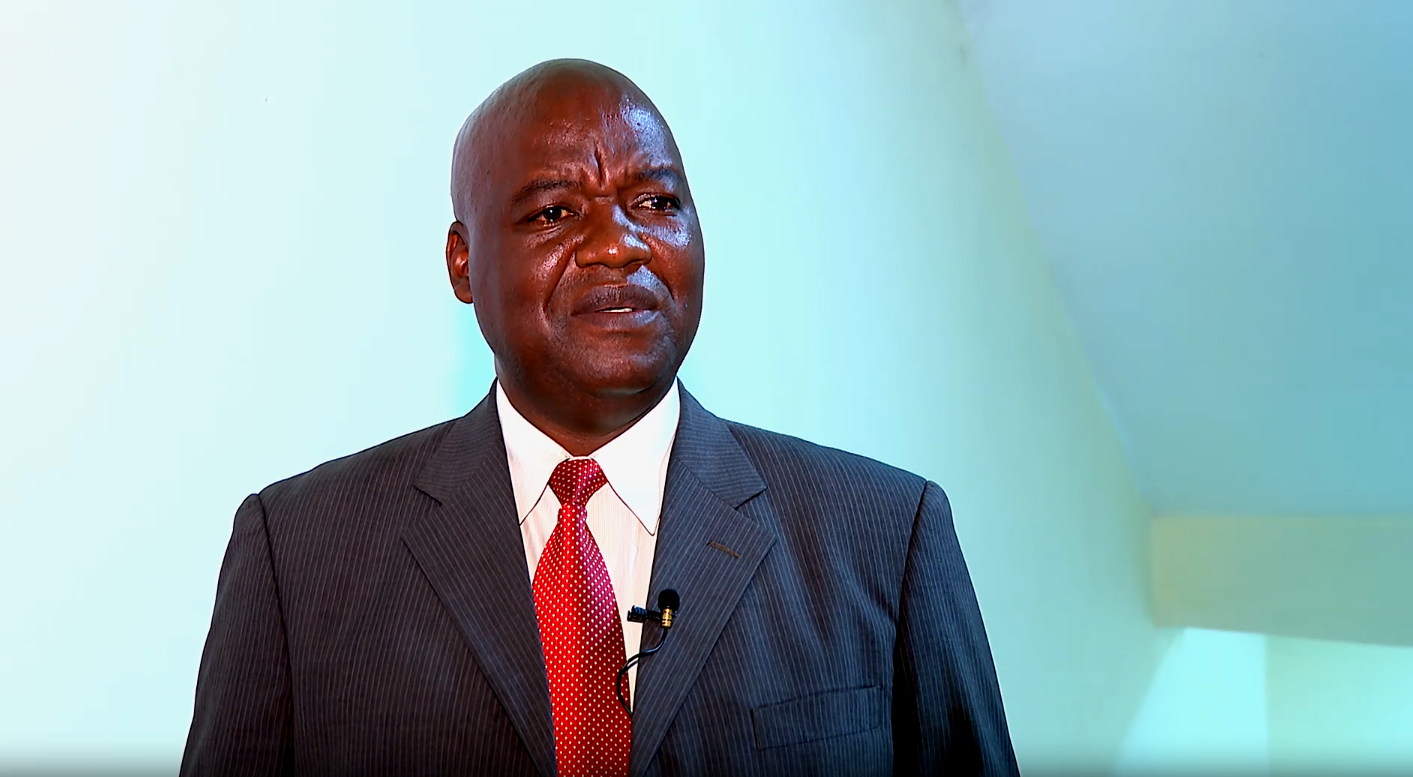
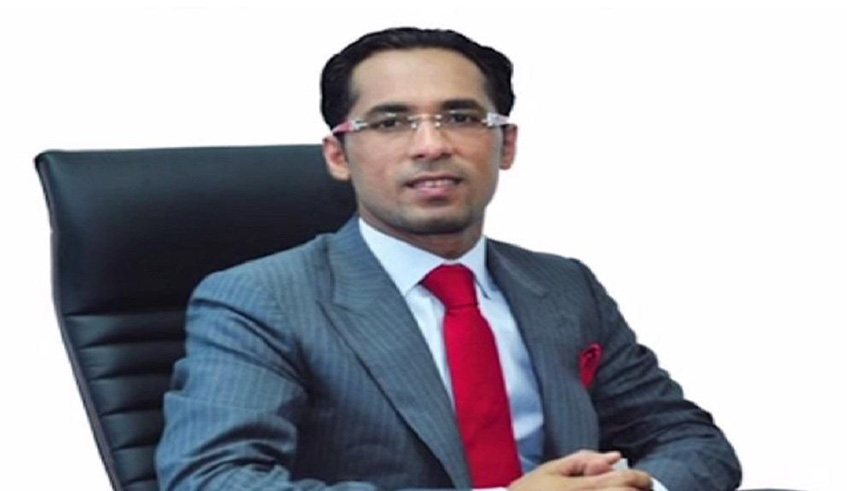 Dar es Salaam. Tanzania is being encouraged to implement deliberate economic policies aimed at creating dollar billionaires and enhancing its global economic influence. According to a new wealth report, the country currently has only one dollar billionaire and a limited number of high-net-worth individuals. The Africa Wealth Report 2023 indicates that Tanzania has 2,400 individuals with a net worth exceeding $1 million. Out of these, only six have assets above $100 million, while the country has just one billionaire despite being the second-largest economy in East Africa. Also read: 435 Tanzanians join the billionaires' club - The Citizen Tanzania While the number of millionaires has risen by 20 percent over the past decade, economists believe this figure could be much higher if the country had strategic policies to support fast-growing local investors capable of expanding into international markets. "The government could significantly boost some of our wealthy entrepreneurs by matching or even partially matching their capital. That alone could reduce our reliance on imports," said Dar es Salaam-based entrepreneur Amina Salum. Experts cite the United States and China as examples of countries that have used state support to create global economic powerhouses. In 2024 alone, the US government allocated over $180 billion in subsidies to domestic companies. Firms such as Boeing, Intel, Amazon and Tesla have benefited from subsidies, tax exemptions and government-backed loans to support research, manufacturing and exports. Such policies have enabled the US to remain a global tech leader, create millions of jobs and use multinational corporations as ambassadors of national influence. China, through institutions like the China Development Bank, has extended low-interest loans and subsidies to companies such as CCCC and China Railway Engineering Corporation, enabling them to execute infrastructure projects across Africa and Asia. Backed by their government, these companies have expanded aggressively, securing contracts in many countries, strengthening China’s global economic influence. Level playing field no longer enough Tanzania has long promoted a “level playing field” approach for all businesses. But analysts say this neutral policy risks holding back local firms with the potential to create wealth and export influence. "Tanzania needs a strategy to support businesses that have proven capacity to create jobs, grow exports and increase tax revenues," said Prof Abel Kinyondo, an economist at the University of Dar es Salaam. He said targeted support could include direct financial subsidies, time-limited tax relief to reduce operating costs and credit guarantees to help companies access large-scale capital. "Strategic preferential treatment works. Ethiopia is already applying it in aviation. Their national airline is now among the best in Africa because it enjoys specific government support," he said. Prof Kinyondo emphasized the need for strong oversight and transparency, saying only experienced, high-performing entrepreneurs should be considered for such support. Another economist, Prof Dickson Pastory of the College of Business Education, said empowering local investors can also enhance national security by reducing dependency on external suppliers for essential goods. "For crucial sectors, supporting domestic production guarantees supply. It also improves Tanzania’s competitiveness in the global economy," he said. While financial subsidies may be challenging for developing countries, Prof Pastory said tax exemptions could achieve similar results. "Reducing tax burdens allows businesses to expand and create more jobs, ultimately boosting national GDP," he noted. BoT support mechanisms already in place The Bank of Tanzania (BoT) has on several occasions expressed willingness to support local businesses through the Export Credit Guarantee Scheme (ECGS) and the SME Credit Guarantee Scheme (SME-CGS). These aim to help private-sector players with bankable projects access financing even when they lack sufficient collateral. In June 2023, at the height of the dollar shortage, BoT governor Emmanuel Tutuba said the central bank had taken steps to encourage domestic production and promote import substitution. He said the BoT board had visited several strategic sites to assess opportunities to boost exports and foreign exchange earnings. "We wanted to know what investors need to scale up production and exports, especially in terms of financial support." Provided by SyndiGate Media Inc. (Syndigate.info).
Dar es Salaam. Tanzania is being encouraged to implement deliberate economic policies aimed at creating dollar billionaires and enhancing its global economic influence. According to a new wealth report, the country currently has only one dollar billionaire and a limited number of high-net-worth individuals. The Africa Wealth Report 2023 indicates that Tanzania has 2,400 individuals with a net worth exceeding $1 million. Out of these, only six have assets above $100 million, while the country has just one billionaire despite being the second-largest economy in East Africa. Also read: 435 Tanzanians join the billionaires' club - The Citizen Tanzania While the number of millionaires has risen by 20 percent over the past decade, economists believe this figure could be much higher if the country had strategic policies to support fast-growing local investors capable of expanding into international markets. "The government could significantly boost some of our wealthy entrepreneurs by matching or even partially matching their capital. That alone could reduce our reliance on imports," said Dar es Salaam-based entrepreneur Amina Salum. Experts cite the United States and China as examples of countries that have used state support to create global economic powerhouses. In 2024 alone, the US government allocated over $180 billion in subsidies to domestic companies. Firms such as Boeing, Intel, Amazon and Tesla have benefited from subsidies, tax exemptions and government-backed loans to support research, manufacturing and exports. Such policies have enabled the US to remain a global tech leader, create millions of jobs and use multinational corporations as ambassadors of national influence. China, through institutions like the China Development Bank, has extended low-interest loans and subsidies to companies such as CCCC and China Railway Engineering Corporation, enabling them to execute infrastructure projects across Africa and Asia. Backed by their government, these companies have expanded aggressively, securing contracts in many countries, strengthening China’s global economic influence. Level playing field no longer enough Tanzania has long promoted a “level playing field” approach for all businesses. But analysts say this neutral policy risks holding back local firms with the potential to create wealth and export influence. "Tanzania needs a strategy to support businesses that have proven capacity to create jobs, grow exports and increase tax revenues," said Prof Abel Kinyondo, an economist at the University of Dar es Salaam. He said targeted support could include direct financial subsidies, time-limited tax relief to reduce operating costs and credit guarantees to help companies access large-scale capital. "Strategic preferential treatment works. Ethiopia is already applying it in aviation. Their national airline is now among the best in Africa because it enjoys specific government support," he said. Prof Kinyondo emphasized the need for strong oversight and transparency, saying only experienced, high-performing entrepreneurs should be considered for such support. Another economist, Prof Dickson Pastory of the College of Business Education, said empowering local investors can also enhance national security by reducing dependency on external suppliers for essential goods. "For crucial sectors, supporting domestic production guarantees supply. It also improves Tanzania’s competitiveness in the global economy," he said. While financial subsidies may be challenging for developing countries, Prof Pastory said tax exemptions could achieve similar results. "Reducing tax burdens allows businesses to expand and create more jobs, ultimately boosting national GDP," he noted. BoT support mechanisms already in place The Bank of Tanzania (BoT) has on several occasions expressed willingness to support local businesses through the Export Credit Guarantee Scheme (ECGS) and the SME Credit Guarantee Scheme (SME-CGS). These aim to help private-sector players with bankable projects access financing even when they lack sufficient collateral. In June 2023, at the height of the dollar shortage, BoT governor Emmanuel Tutuba said the central bank had taken steps to encourage domestic production and promote import substitution. He said the BoT board had visited several strategic sites to assess opportunities to boost exports and foreign exchange earnings. "We wanted to know what investors need to scale up production and exports, especially in terms of financial support." Provided by SyndiGate Media Inc. (Syndigate.info).


